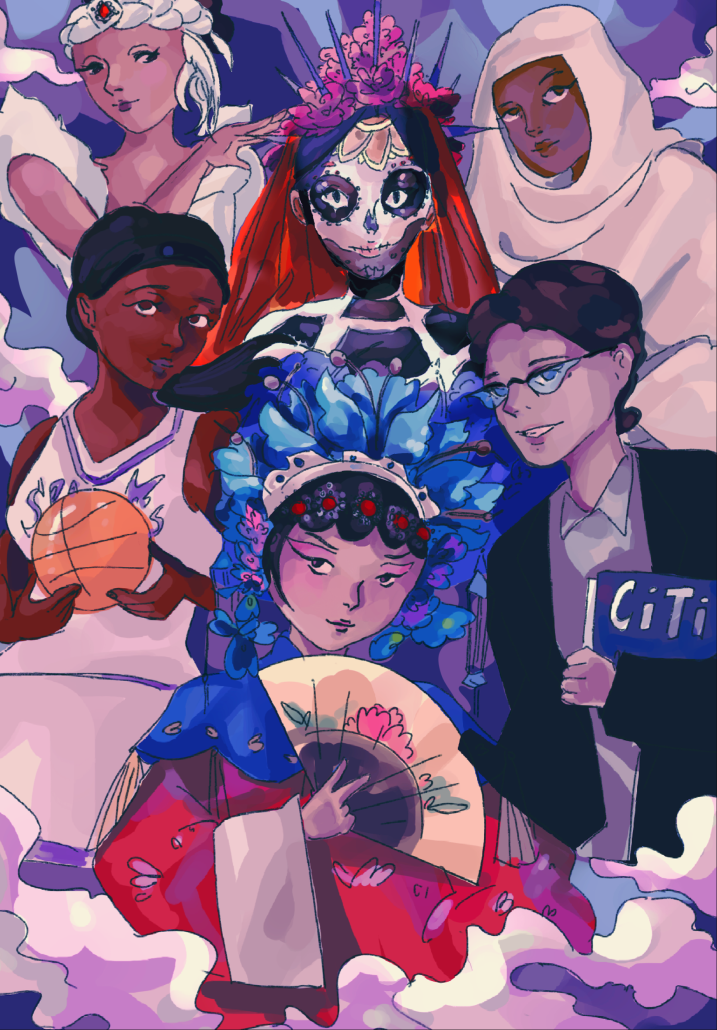Women we should’ve learned about

History in general, and especially history about marginalized communities, can become too repetitive, shining light on the same individuals from textbook to textbook, lecture to lecture. Our history books and classes have mostly celebrated men who have had meaningful impacts in our world, often leaving out women who contributed immensely to society.
Harriet Tubman, Rosa Parks, Katherine Johnson and Malala Yousafzai are all extraordinary women in history who you’ve probably heard about. If you haven’t, please look them up … like now! Although we might have learned these names in classes or from the news, there are so many more unrecognized phenomenal women with whom you should absolutely familiarize yourself with.
Trưng Sisters (unknown – AD 43)
Trưng Trắc and Trưng Nhị, known as the Trưng sisters, headed a rebellion against the Chinese Han Dynasty overlords and established a self-ruling state. The Han Chinese invaded what is now Vietnam in 111 BC. To fight against Chinese rule, the two sisters banded together with about 80,000 soldiers consisting of peasants and aristocrats.
The sisters marched on Lien Lau, the commandery capital of Vietnam, armed with swords, bows, arrows, axes and spears. After successfully driving the Chinese out of the region, Trắc was declared queen of a newly independent country and ran Vietnam alongside her sister.
Dr. Jane Cooke Wright (1919 – 2013)
Wright was a professor of surgery, head of the cancer chemotherapy department and associate dean at New York Medical College. She was also the first woman to be elected as the president of the New York Cancer Society, and had a major breakthrough in medicine.
Wright tested chemicals for effective anti-cancer properties on leukemia and other cancers. Her work on these cancers established the effectiveness of methotrexate, a medication that slows the growth of cancer cells, in treating breast cancer. Wright’s research drastically advanced cancer treatment and laid the foundation for treating tumors with the help of chemotherapy.
Dolores Huerta (1930 – Present)
Huerta was a labor activist, civil rights leader and the co-founder of the National Farm Workers Association, which later became the United Farmers of America. As a teacher, she saw that many children of farm workers came to school hungry, so she left her job to help her students’ parents earn more equitable wages and working conditions.
Huerta helped organize a strike of 5,000 grape workers, which eventually led to a successful union contract for farm workers in 1970. As the leader of the National Farmworkers Association, she continued her work of supporting and empowering farmers by providing English classes, voter registration drives, health clinics and a credit union for the association’s members.
Margaret Hamilton (1936 – Present)
Hamilton was a computer scientist who was one of the first computer programmers to coin the term, “software engineer.” As a software engineer, she helped write the code for the lunar and command modules that were used on the Apollo missions to the moon in the 1960s and 1970s.
Hamilton’s focus on software that could detect system errors and recover information in a computer crash was essential in the Apollo 11 mission that took Neil Armstrong and Buzz Aldrin to the moon. Her work the at Massachusetts Institute of Technology extended to programming software that could predict the weather and writing software that went on to identify enemy aircrafts for the first United States air defense system.
All of these women embodied grit, excellence, drive and brilliance that allowed them to have a profound impact on human culture, health, labor rights and technological systems. They have left us with lessons that we can forever hold onto.
The Trưng sisters teach us the importance of fighting for what we love and standing by it despite the obstacles that come our way; Wright teaches us that our excellence will shine through regardless of others’ negative biases against us; Huerta teaches us the importance and weight that our voices carry when we see injustice occurring; and Hamilton teaches us that there are no limits to our work and craft.
We should continue to educate ourselves beyond Women’s History Month about underrepresented women in history and the way they continue to influence our lives to this day.
Knowledge is power, so grow deeper in it. Rather than reading about the first few men that come up during research about a historical event or invention, let’s look deeper to try and find the women who have also contributed in a meaningful way.

